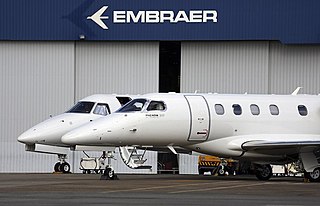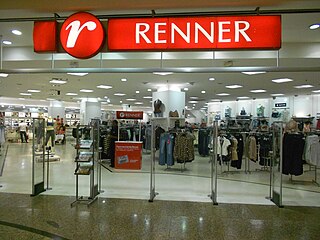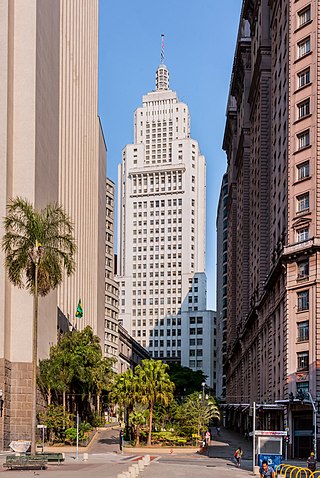A shareholder of corporate stock refers to an individual or legal entity that is registered by the corporation as the legal owner of shares of the share capital of a public or private corporation. Shareholders may be referred to as members of a corporation. A person or legal entity becomes a shareholder in a corporation when their name and other details are entered in the corporation's register of shareholders or members, and unless required by law the corporation is not required or permitted to enquire as to the beneficial ownership of the shares. A corporation generally cannot own shares of itself.

The Mexican Stock Exchange, commonly known as Mexican Bolsa, Mexbol, or BMV, is one of two stock exchanges in Mexico, the other being BIVA - Bolsa Institucional de Valores. It is the second largest stock exchange in Latin America, only after São Paulo based B3 in Brasil. It is also the fifth largest stock exchange in the Americas. The exchange platform is owned by BMV Group, which also owns the derivative exchange MexDer and the custody agency Indeval.

Embraer S.A. is a Brazilian multinational aerospace corporation. It develops and manufactures aircraft and aviation systems, and provides leasing, equipment, and technical support services. Embraer is the third largest producer of civil aircraft worldwide after Boeing and Airbus. The company also has a significant presence in military aviation, ranking among the top 100 defense contractors. It is headquartered in São José dos Campos, São Paulo, Brazil, with offices and operations in China, the Netherlands, Portugal, Singapore, and the United States.
Corporate governance are mechanisms, processes and relations by which corporations are controlled and operated ("governed").

A joint-stock company (JSC) is a business entity in which shares of the company's stock can be bought and sold by shareholders. Each shareholder owns company stock in proportion, evidenced by their shares. Shareholders are able to transfer their shares to others without any effects to the continued existence of the company.

Corporate law is the body of law governing the rights, relations, and conduct of persons, companies, organizations and businesses. The term refers to the legal practice of law relating to corporations, or to the theory of corporations. Corporate law often describes the law relating to matters which derive directly from the life-cycle of a corporation. It thus encompasses the formation, funding, governance, and death of a corporation.

B3 S.A.– Brasil, Bolsa, Balcão, formerly BM&FBOVESPA, is a stock exchange located in São Paulo, Brazil, and the second oldest of the country.
Share repurchase, also known as share buyback or stock buyback, is the reacquisition by a company of its own shares. It represents an alternate and more flexible way of returning money to shareholders. When used in coordination with increased corporate leverage, buybacks can increase share prices.

Lojas Renner is a Brazilian department store clothing company, headquartered in Porto Alegre, Rio Grande do Sul, Brazil. It was the first Brazilian corporation with a hundred percent of shares traded on the Stock Exchange and listed on the Novo Mercado, the highest amongst the different levels of corporate governance in São Paulo Stock Exchange (B3). Its main competitors are Lojas Riachuelo, C&A, and Hering.

Copel - Companhia Paranaense de Energia is a Brazilian electric utility company, the largest company of the State of Paraná, founded on October 26, 1954 with ownership control held by the State of Paraná.
Gafisa is the fourth largest Brazilian residential construction and real estate company, after Cyrela Brazil Realty, PDG S.A. MRV Engenharia and Brookfield Incorporações. It is based in São Paulo and present in various cities of Brazil. Gafisa was founded in 1954. Gafisa's predecessor company is the Cimob Companhia Imobiliária, from whom Gafisa S.A. inherited its brand name, assets, liabilities, and market position.

The Ultra Group is a Brazilian conglomerate operating in the industry segments of energy and logistics infrastructure through its subsidiaries Ipiranga, Ultragaz and Ultracargo. These subsidiaries are fully controlled by the holding company Ultrapar. The Group's shares are traded under the name Ultrapar on São Paulo (B3) and on New York (NYSE) stock exchanges.

Banco Santander (Brasil) S.A. is the Brazilian subsidiary of the Spanish Santander Group, headquartered in São Paulo, Brazil. It is the fifth largest banking institution in Brazil, as well as the fifth largest in Latin America, and the largest division of the group outside Europe, accounting for around 30% of its financial results globally by 2019. The bank is listed at the B3 in São Paulo, and at NYSE though ADRs.

PDG is the second largest real estate company in Brazil, after Cyrela Brazil Realty and has its focus on the popular segment. The company became listed in January 2007 in the corporate index Novo Mercado of BM&F Bovespa and in 2010, became part of the Ibovespa index, but was removed in 2016, because its shares fell by around 95%. PDG Realty its based in Rio de Janeiro.
Even is a Brazilian construction and real estate company. It is listed on B3, the São Paulo Stock Exchange.
Michael Klein is a Brazilian business executive. He is the CEO of the Brazilian chain of department stores, Casas Bahia, and former Chairman of Via Varejo, the parent company of Casas Bahia, Cnova Brazil and Ponto Frio. Michael's father, Samuel Klein, founded Casas Bahia in 1952. Since June 2019, the Klein family own a controlling stake in Via Varejo.

Via, formerly Via Varejo, is a Brazilian retail company founded in 2010 through the merger of retail companies Casas Bahia, owned by the Klein family, and Ponto, owned by Grupo Pão de Açúcar. Since June 2019, the Klein family owns a controlling stake in Via Varejo.

Iguatemi is the third largest Brazilian firm working within the fields of creation, planning, development, and administration of shopping centers after BRMalls and Multiplan. Iguatemi has shareholdings in 16 shopping malls, 1 premium outlet and 3 office towers that account for 657.000 m² of gross leasable area (GLA). Such space is used by 3.004 stores that welcome approximately 10 million customers per month.
BRMalls, styled as brMalls, is a Brazilian company that operates in the business of shopping center management, with participation in 31 shoppings in all regions of Brazil. The company was founded in 2006, after a partnership between GP Investments and Equity International in the acquisition of ECISA, Dacom and Egec. It is currently one of the largest shopping mall operators in the country.

M. Dias Branco S.A. is a Brazilian multinational company that manufactures, markets and distributes biscuit, pasta, cakes, snacks, wheat flour, margarine and vegetable shortening throughout Brazil, headquartered in the city of Eusébio, Ceará.












